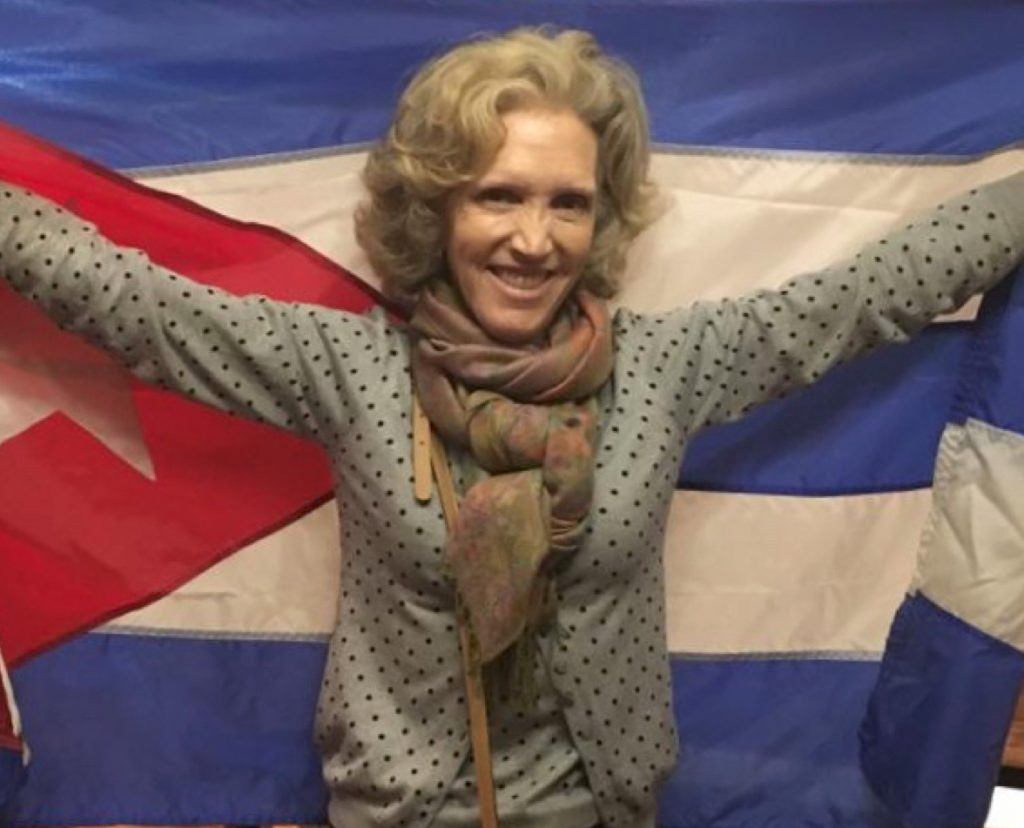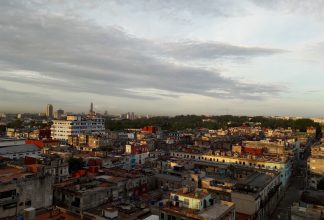The European Union and Cuba: Stop the Agreement

Letter #8 by Cuba Female Network.
In July 2019, Civil Rights Defenders invited Cuban human rights defenders and civil society organisations to contribute with texts on how the European Union should work towards Cuba. This letter comes from Cuba Female Network.
The European Union and Cuba: Stop the Agreement
On December 2016, the EU and Cuba sign the so-called Political Dialogue and Cooperation Agreement. Until that date, the so-called Common Position approved by the Council of Ministers in 1996 and updated every six months following periodic assessments had been operational in Europe.
The European Union’s goal in its relationship with Cuba is to promote a process of transition toward a pluralist democracy and respect for human rights and fundamental liberties. Cuba always rejected this Common Position as interference in its internal affairs, a rhetoric that was accepted by the EU without understanding that signing the bilateral agreement did not mean that the Cuban government was not going to change this rhetoric, for a very simple reason: its lack of political will.
We understand that for the agreement’s advocates, one of its strengths would be that a thaw among the parties would close the distance between their stances, and that close human relationships would reach a point of mutual rapprochement and compromise. Nothing could be farther from reality. The parameters of behaviour and thought are very different, not to say antagonistic. What some consider diplomacy is interpreted by others as weakness.
Since the agreement was signed (2016), the Cuban authorities have violated, among others, Title II of the later, which addresses matters related to democracy, human rights, and good governance, as well as Title IV, which refers to social development.
Díaz Canel’s government has intensified the repression against the independent press and civil society activists and objectors. This not only contradicts international human rights standards but also the regulations established in the new constitution, approved in a sectarian manner by the regime.
In 2018, the Cuban government presents a constitutional reform in which we were all invited to participate. We, the Damas de Blanco Association, the Cuban Observatory for Human Rights, the Cuban Christian Democratic Party (PDC), and the Cuban Convivencia Studies Center, presented a proposal for “a constitutional reform and transition, and legal framework in Cuba: from the Law to the Law.” This proposal for reform was positive and perfectly affordable by the Cuban government. Presented before the National Assembly of People’s Power and shared with the international community, it was totally overlooked by the Cuban authorities.
The result was a Stalinist reform. The source of the problem is rooted in the fact that the regulation and exercise of fundamental rights are conditioned by the legal narrative that governs the entire constitution. Its essence lies in the subordination of “all” to what Cuba’s Communist Party determines, given that the justice tribunals and their entities are controlled by this sole party. The same State that says that rights can be asserted judicially, suffocates the exercise and assertion of the same through repression and exclusion.
The Cuban government has ratified the ILO’s agreements, and is a signatory to the ICCPR and ICESCR. Under international law, the States’ failure to comply with these instruments constitutes a human rights violation.
There are 20 ILO’s agreements that continue to be violated (salary protection and seizure of the same, forced labour, the right to association and collective negotiation, among others). The exportation of medical services is a clear example that is clearly known today, and which has been christened by aid workers as “white dress slavery.” Decree 349 regulates state-controlled cultural production, which has resulted in a wave of arbitrary arrests.
The recommendations that we have made to the Cuban government are:
- The enhancement of economic, social, and cultural rights in Cuba through changes in laws, public policies, and government institutions for the liberation of private and corporate work to remedy the endemic lack of state resources.
- The necessary creation and/or real execution of constitutional, procedural, and legal guarantees so that citizens can regain and protect all human rights within the country.
The Cuban government has failed to comply, and still fails to comply, with all its commitments, both internally and externally, reason for which we consider that the time to suspend the PDCA has come, and to pressure the Cuban authorities to attain the true goal of fulfilling the indicated objectives.
The European Union cannot continue ignoring the deterioration of the situation in Cuba. It has more than enough reasons, by and for the Cuban people’s good, to suspend the Agreement due to non-compliance, a decision that would be endorsed not only by reason but by law.
A last note to keep in mind is that Lithuania has not ratified this agreement, even when considering what this means for the development of it.
About Cuba Female Network
The Cuba Female Network (Red Femenina de Cuba) is a platform for the dissemination of training, talent and capacity for thought and action. It is an initiative arising from the will of several women committed to political change and social improvements in Cuba. Its objectives focus on training women and empowering women to neutralise gender-based violence, and in coordinating actions for the defence of women, their rights and their role in society, among others; through training workshops. The network is composed by organisations such as the Citizens Committee for Racial Integration, the Independent National Workers Confederation, Dignity Movement, Peasant Women, Independent and Democratic Cuba, Club of Cuban Artists and Writers, Autonomous PInero Party, among others; and by leaders, activists and human rights defenders. The Women’s Network, together with the Cuban Alliance for Inclusion, has promoted the #UnidasPorNuestrosRights campaign in defense and support of Cuban women who suffer harassment and violence, both public and private.

